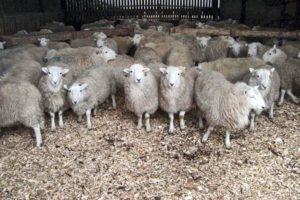Alternatives To Straw For Sheep
8 November 2017Tupping is about to get underway but we need to start planning for housing sheep and lambing now, due to straw shortages. Make sure you know how much straw is required and ensure your usual supply is available. There are alternatives to straw if your supply is short this year, although it must be remembered alternatives will be sought after and securing your bedding material soon is recommended.
Sawdust
Currently trading at approximately £30/tonne ex works. Sawdust is an absorbent clean material, as long as it is kept fresh. Sawdust makes a good base for a bed, this could be used alternatively with straw, if your supply is short. Ensure the sawdust is free of contaminants before using for animal bedding.
Peat
Currently trading at approximately £10/tonne ex works, but supplies are limited. Peat offers an extremely absorbent bed, which is up to four times more absorbent than straw. The bed is often warmer to lie on than a straw bed, with the peat retaining heat. The top can go crusty unless it is mixed in with straw. Peat is not permitted for organic producers.
Recycled Fines
Currently trading at approximately £42/tonne ex works. Care must be taken to ensure the supply is free of contaminants e.g. nails, glass, etc.
Other sources include woodchips, shavings, paper waste, etc. As well as the cost and supply of the material, you should also check the fertiliser value, ease of spreading and how often you need to freshen up the bed.
Housed sheep have a rather low volume of excreta at 0.15m3/month for a ewe. The space allowance for a pregnant ewe is 1.0 – 1.4m2/head, meaning the depth of excreta from ewe to floor over a month is 0.125m. As soon as the ewe lambs she will have a vast amount of liquid reaching the bedding in placenta, amniotic fluid and lambs, at this time hygiene is paramount. Indoor lambing systems simply can’t scrimp on bedding, so make sure you plan your bedding strategy for 2018 lambing well in advance.
Kirsten Williams, kirsten.williams@sac.co.uk
Sign up to the FAS newsletter
Receive updates on news, events and publications from Scotland’s Farm Advisory Service

